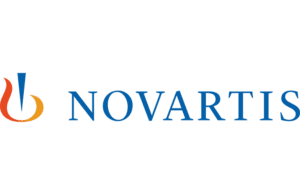 Novartis (NYSE:NVS) has announced that chemotherapy plus tislelizumab, a humanized monoclonal antibody directed against PD-1, improved overall survival as a first-line treatment for adult patients with unresectable, locally advanced or metastatic esophageal squamous cell carcinoma (ESCC) in the Phase 3 RATIONALE 306 study.
Novartis (NYSE:NVS) has announced that chemotherapy plus tislelizumab, a humanized monoclonal antibody directed against PD-1, improved overall survival as a first-line treatment for adult patients with unresectable, locally advanced or metastatic esophageal squamous cell carcinoma (ESCC) in the Phase 3 RATIONALE 306 study.
The survival benefits were seen in patients regardless of PD-L1 status.
The benefits were consistent across patient subgroups in the study.
In the study, the combination of tislelizumab and chemotherapy resulted in median overall survival of 17.2 months compared to 10.6 months in patients receiving chemotherapy plus placebo.
Investigators concluded that the combination of chemotherapy and tislelizumab cut the risk of death by 34%.
Tislelizumab was first developed by BeiGene. Novartis paid $650 million for rights to the drug. The company also stands to pay up to $1.55 billion in potential milestone payments.
Novartis developed its own PD-1 inhibitor, spartalizumab. In 2020, spartalizumab did not meet its primary endpoint of investigator-assessed progression-free survival in the Phase 3 COMBI-i in advanced melanoma. The study tested using spartalizumab in tandem with Tafinlar (dabrafenib) and Mekinist (trametinib).
“These data, which show tislelizumab plus chemotherapy extended patients’ lives by a median of more than six months, are a promising outcome in the treatment of this aggressive cancer,” said Dr. Ken Kato, chief of head and neck medical oncology, National Cancer Center Hospital, Tokyo, Japan, in a statement. “Importantly, the significant overall survival benefit was observed across all patient subgroups in the trial, indicating that tislelizumab plus chemotherapy may be a viable treatment option for patients regardless of their PD-L1 score.”
Regulators in the U.S. and Europe are reviewing tislelizumab for advanced or metastatic ESCC after prior chemotherapy.
Novartis announced that the RATIONALE 306 study is the seventh positive Phase 3 study readout for tislelizumab.
Tislelizumab has been the subject of more than 200 clinical studies to date.
Filed Under: Oncology





Tell Us What You Think!
You must be logged in to post a comment.